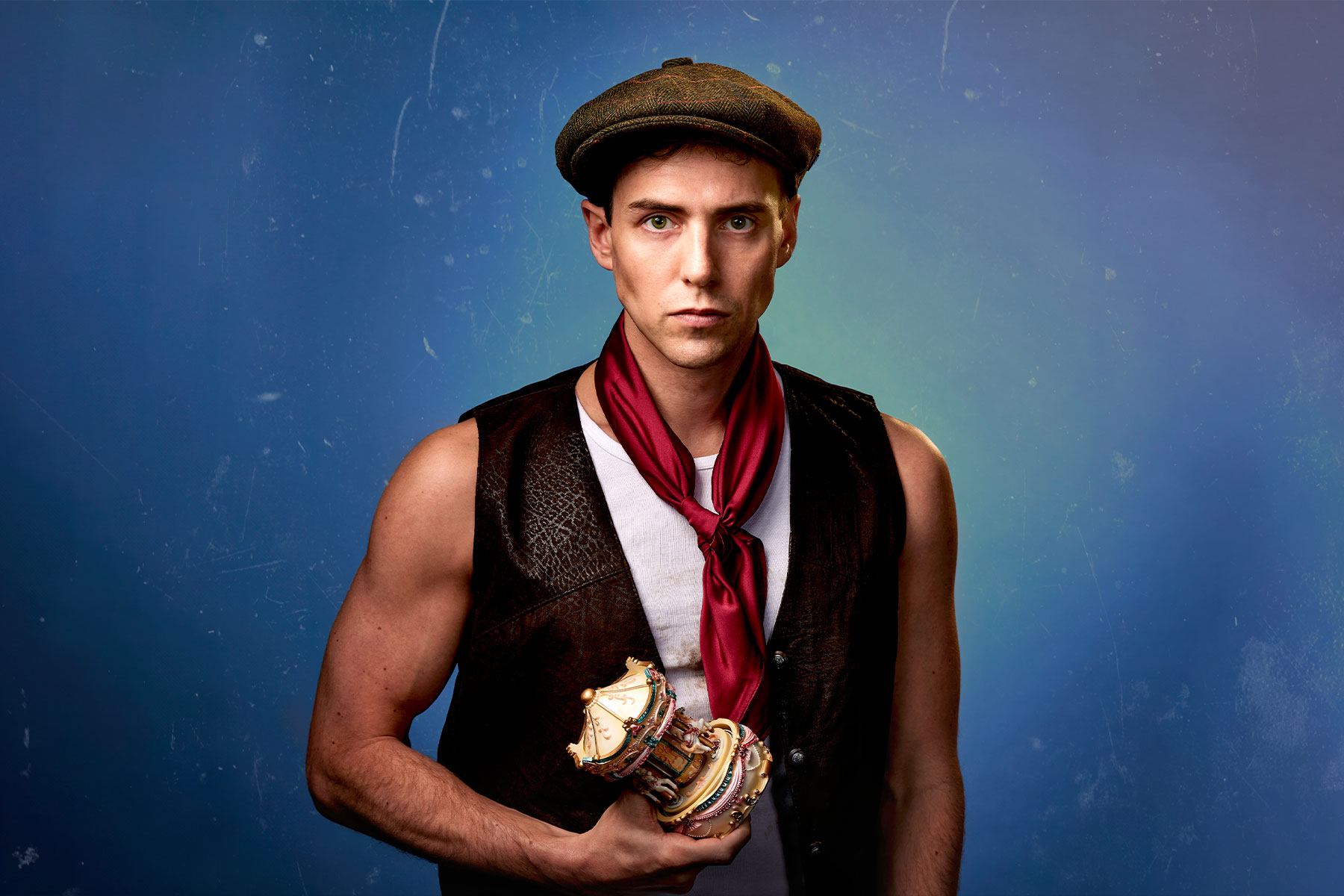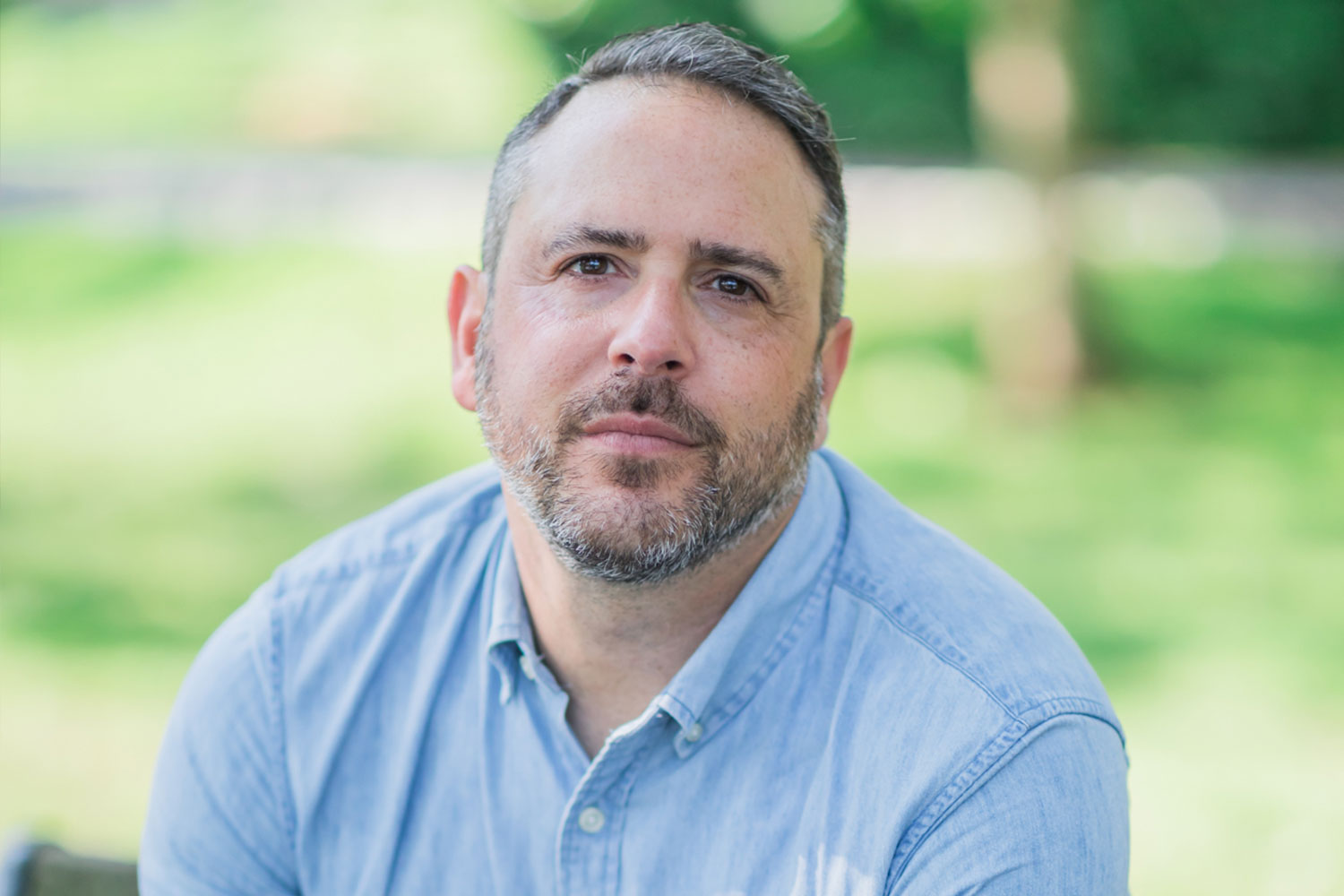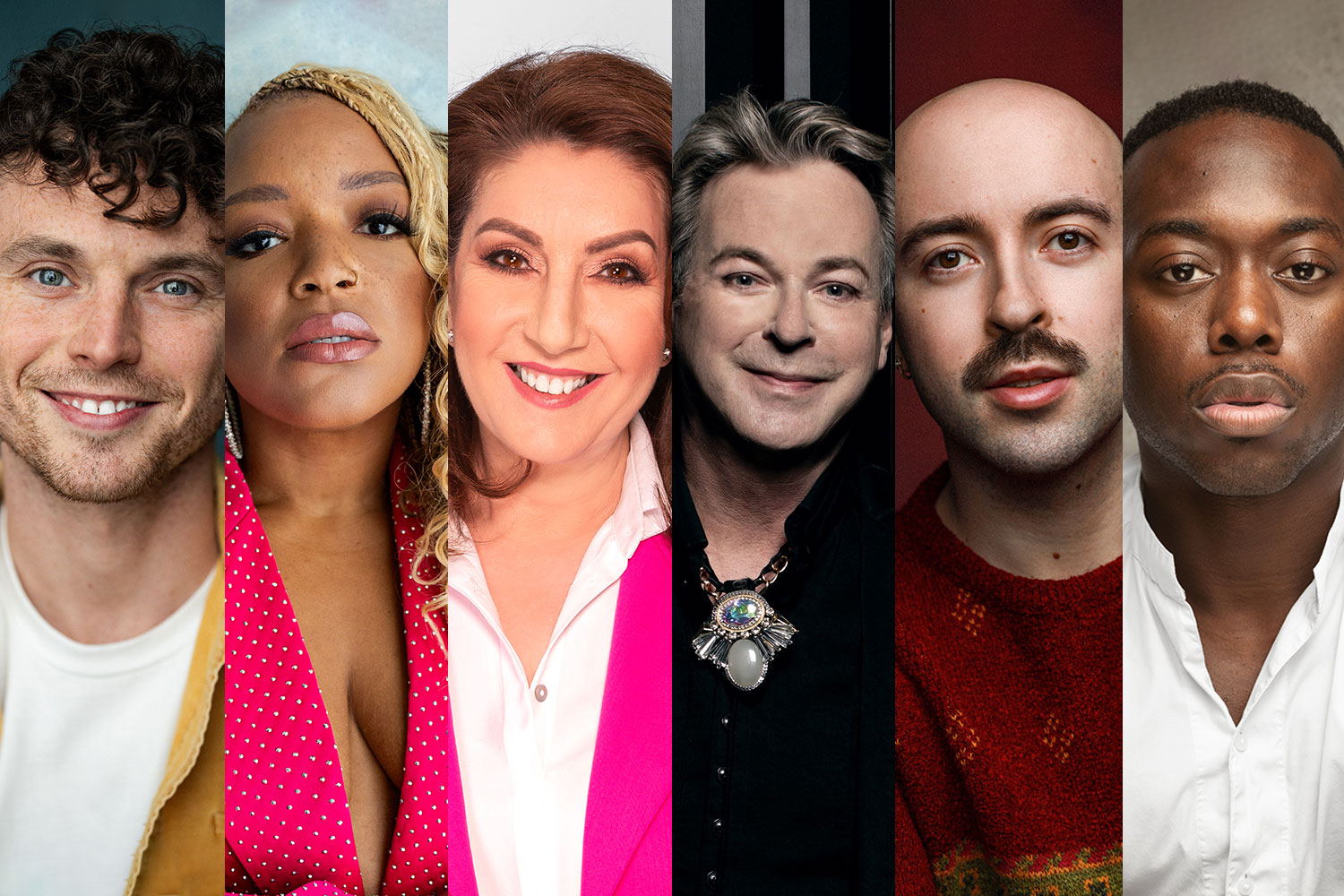20 Questions With…Ian Talbot
Although trained as a drama teacher, Ian Talbot in fact launched his career as an actor, with one of his earliest professional jobs being at the Open Air Theatre in Regent’s Park, where he joined the cast of perennial park favourite A Midsummer Night’s Dream to play Bottom, a part he’s now played nine times in total.
Since that first production, in 1971, Talbot has been an Open Air regular. His many other parts there have included Sir Toby Belch in Twelfth Night, Fluellen in Henry V, Grumio in The Taming of the Shrew, Dromio in The Comedy of Errors, Trinculo in The Tempest, Dogberry in Much Ado About Nothing and Napoleon in Shaw’s Man of Density.
In 1987, Talbot was appointed artistic director of the Open Air Theatre and its resident New Shakespeare Company, which each year mounts its much-loved summer season – normally comprising two Shakespeares, one musical revival and a children’s production in addition to music and other one-off events – come rain or shine.
Since his appointment, Talbot has produced over 70 shows at the park and directed Olivier-nominated musicals such as Oh What a Lovely War, A Funny Thing Happened on the Way to the Forum, The Pirates of Penzance, Babes in Arms, The Fantasticks, Lady Be Good and Kiss Me Kate, as well as various Shakespeare and other productions.
This summer, Talbot wears both his acting and directing hats, appearing in Rachel Kavanaugh’s production of Two Gentlemen of Verona and directing High Society. The latter – which stars Annette McLaughlin, Tracie Bennett and Brigit Forsyth – is London’s first professional production of the famous Cole Porter musical in 15 years.
Date & place of birth
Born 19 December 1942 in Esher, Surrey.
Trained at…
Central School of Speech and Drama on the teaching course. I don’t know if I wanted to be a teacher, but at the time, I’d done my A levels, I’d been in school plays and I knew I wanted to do something. My English teacher told me they were auditioning for teachers on the teaching course. In the mid-1960s, many more females wanted to teach than males did so, although I hoped I had some talent, it was easier to get in because I was a man. Halfway through the course, a director who used to direct Dr Who in the early days came to me and said I could be an actor. I cheated a bit really by leaving Central with a diploma and having made contacts in acting.
Lives now in…
London SW18, near Wimbledon. People complain about the disruption at Wimbledon in the summer, but I’m mad on tennis and it’s only for two weeks after all.
First big break
A director called Richard Digby Day saw me in a production of Peer Gynt at the Liverpool Playhouse and, because of that, I got an audition for this company here at the Open Air. So very early on in my career, in 1971, I first appeared here and played Bottom, which was the one part I wanted to play. At quite an early age, I’d fulfilled an ambition so I was very lucky.
Career highlights to date
Obviously being asked to take over here as artistic director was one! But I’ve played some wonderful parts here too. I think another highlight is probably when I did five years at the RSC as an actor. I understudied Antony Sher in the King Lear with Michael Gambon. Sadly for Antony (but not for me), he snapped his Achilles tendon so I played the Fool opposite Gambon’s Lear for six months. That was fantastic. It was very hard when Antony came back, and I was a walking understudy who sat in the dressing room.
What’s the secret to being a successful artistic director?
You have to be accessible. I don’t shut myself up in an office and make decisions. Of course, sometimes you do have to make nasty decisions, but so long as you’re approachable, then people will accept harsh decisions if there’s good reason behind it. I deal with the public and the Friends of the Theatre, the front of house and the company. It’s just about being in touch and being aware of what they want.
Favourite productions you’ve ever worked on
I tend to direct the musicals here and I’ve adored some of them, especially Kiss Me Kate, which later went to Brisbane. The Australian producer saw a preview and asked if I’d go out so of course I said yes. I loved working on Lady Be Good, and The Pirates of Penzance was a real career thing as I also got nominated for Best Director in the Olivier Awards. I knew I wouldn’t win, but it was fantastic to be up against Michael Grandage, Trevor Nunn, Nicholas Hytner, Howard Davies … and me.
I love A Midsummer Night’s Dream. I’ve played Bottom nine times, directed it twice, done a nine-week trip of Africa, a European tour and many tours in this country. I think Bottom is the best written part ever. It’s got everything – comedy, pathos, humanity. I adore him. It’s good for other people to do it, though, and Peter Forbes this year is absolutely excellent. I’m getting on a bit, too, and it’s quite exhausting. So these days I think to myself ‘have I got the energy?’. I’m sure I’ll do it one last time. We do the Dream every two years and then have a year out and do a new production. There are always fresh things to find.
Do you try to present A Midsummer Night’s Dream differently each time it’s done at the Open Air?
Obviously directors have to run their plans past me, as I run the place, but I don’t mind if they come up with a valid concept that serves the play right. This year’s is a modern dress production, but I think it would be wrong to do it in, say, tracksuits. There’s a romance in this theatre, and if you didn’t have that in the production, it would be a shame.
Favourite actors
Michael Gambon is one. He has great humility and he’s never the same in any performance, he always varies it and I think he’s mesmeric. I did admire Nigel Hawthorne tremendously. I also worked with him at the RSC, and I remember seeing him in Privates on Parade and thinking he was absolutely miraculous. Bernard Cribbins, who I directed here in Lady Be Good, is an actor I admire because he has a real lightness of touch as a comedian – it seems effortless. To me, with a great actor, you can’t see the cogs working, you think that they’re hardly acting at all.
Favourite directors
Rachel Kavanaugh, who has worked here a great deal. I enjoyed working with Howard Davies at the RSC, and I’ve very much enjoyed working with Adrian Noble. Another director who I worked with recently is Tim Carroll who directed me in a production of Twelfth Night at Middle Temple Hall. I played Toby Belch with Mark Rylance as Olivia. It went on to the Globe last summer, but sadly I couldn’t go with it due to my commitments here.
Favourite playwrights
When I started my career, I wanted to be in sitcoms and soap operas. Instead, I’ve ended up doing most of Shakespeare’s plays so I have to say Shakespeare. I do think he’s incredible. I also like Peter Nichols. As for musical writers, I’m mad about Cole Porter and also Rodgers and Hart.
Do you have any preference between musical or ‘straight’ theatre?
I’m mad about theatre in general so I don’t mind if it’s plays or musicals. I don’t mind going even if a show isn’t that good because I always get something out of it, though I know that puts other people off. I love directing musicals because I love the collaboration between the musical director and the choreographer, and I like working on the texts of the musicals too. I haven’t directed a Shakespeare play for ages, so I might do that next year. I’ve never directed one that I’m in. I just wouldn’t have the nerve – as an actor, I certainly need notes!
When you’re being directed as an actor, are you ever inclined to play it how you want?
I find the worst day, as a director, is the first read-through because you know if you’ve mucked up the casting. It should be a two-way thing. The rehearsal room is a creative place where, if you’re sitting there saying ‘you there and you do that’, there’s something wrong with the process. When I approach a scene, I may have a certain idea and the actor has an idea – out of our two perspectives comes something very exciting. When I’m in a play, particularly here at the Open Air, it’s important that I become a member of the company and not the artistic director.
What’s the best thing you’ve seen on stage recently?
The musical Contact. It’s something I was taken to see and thought I would loathe, but I absolutely adored it. It had great notices but I know a lot of people who said they didn’t enjoy it. I thought it broke barriers with choreography.
What would you advise the government to secure the future of theatre?
To make sure students can afford to train properly. I sit on a panel that interviews third-year students who can’t afford to complete their course. When they’re at drama school, they have to go out and work in a bar at weekends. Generally, I approve of that, but in the third year, they’re doing late night shows so they haven’t got the time.
If you could swap places with one person (living or dead) for a day, who would it be?
It’s a boring answer, but I suppose Shakespeare. What it must have been to be the most popular writer in that time… When I went to Africa with A Midsummer Nights Dream, I forgot that children there didn’t necessarily know the play. Here, everyone knows that a character comes on in an ass’s head, but can you imagine being in the audience in Africa when that happens? Seeing it for the first time like that, the switch for them must have been just amazing!
Favourite books
Anything by Charles Dickens. When I first read David Copperfield, I was genuinely upset when it finished. Dickens was the first writer that happened with for me. I don’t think they’re that well written, but I’m mad about the Harry Potters and I love biographies. But if I go back for a reread of anything, it’ll be a Dickens. I like some of the stage adaptations of his work, too. The RSC’s Nicholas Nickleby was fantastic. If anyone had said to me I was going to sit in the theatre for eight hours and not be bored or drop off, I wouldn’t have believed them. But that was just an incredible production.
Favourite holiday destination
My first wife died about seven years ago. I remarried two and a half years ago so I suppose at the moment, Jamaica, where we went for our honeymoon, is a favourite destination. My favourite country is Italy.
Why did you want to include High Society in this season’s repertory?
We usually only do 27 performances of musicals; it’s restrictive because of the summer and people won’t come in the dark. We have to do a show with a recognised title so that people will book in advance and we’ve got no time to build the business. I’ve always loved High Society, but the rights weren’t available for a long time so I applied for them. It’s got a great score, great book and great title. Beyond the Open Air, I’d absolutely love to direct a new musical. I was going to direct Honk! at one point, but the money fell through and then Julia McKenzie did it and it became a huge hit. You just need to be asked.
How difficult is it appearing in one production while directing another?
It’s tiring. In the lead up to High Society opening, my day would start at 10.00am with rehearsals for it, then I’d show up half an hour before the matinee of Two Gentlemen, do the show, two interviews in the tea break and then the evening show. So my working day would be from ten in the morning until eleven at night. Obviously, at an open air theatre, you have to ask people to work in weather conditions that aren’t so conducive. If I’m in a show and I’m prepared to act in the rain, then at least they can’t complain that the boss has gone home to watch EastEnders. I think that’s why this place works.
What’s your favourite number from High Society? And your favourite line from The Two Gentlemen of Verona?
“She’s Got That Thing” is very catchy. It’s got the most wonderful swing to it, and it leads into the plot so you know why they’re singing it. It isn’t in the film version. My favourite line from Two Gentlemen is “I, having been acquainted with the smell before”, which refers to the dog pissing under the Duke’s table. It seems to me the most wonderful phrase.
What attracts people to the Open Air Theatre every summer?
The star of any Open Air production is the theatre itself, in the centre of Regent’s Park. People come here for the whole experience. They can have their picnic on the lawn, meet up with their friends and stay on afterwards in the bar, which stays open until midnight. It’s special and certainly doesn’t feel like you’re in the middle of the city.
What are your plans for the future?
I’d like to develop the Open Air’s studio, which was built when we had the lottery grant three years ago. One of the criticisms of this theatre is that we play safe, but that’s because we have to and we get no funding. I’d love to encourage new work, and if I could get funding to do late night shows – and there is an audience for it – then I would. I would also like to commission new work. There’s room for both traditional and new. Whether I can take risks depends on how we do at the end of a season.
I can’t stay on here at Regent’s Park for ages because I won’t have the energy soon, but I’ll be here as long as I can think of new things to develop. I’m terribly proud that this theatre gets judged on levels with the likes of the RSC and the National. That pleases me more than anything.
– Ian Talbot was speaking to Jake Brunger
The Two Gentlemen of Verona plays in repertory at the Open Air Theatre in Regent’s Park until 4 September 2003. High Society opens on Thursday 24 July 2003 (following previews from 22 July) and now continues until 13 September 2003.










